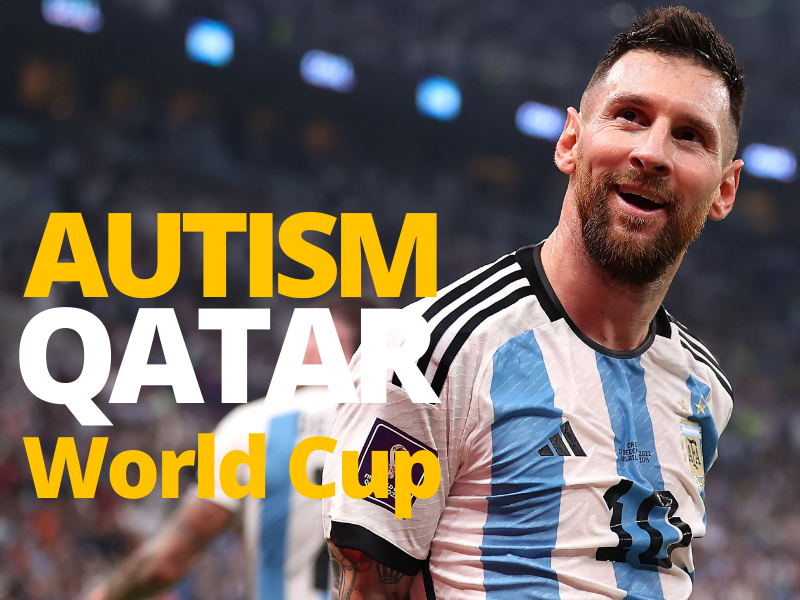
For the first time at the tournament, specially designed ‘sensory rooms’ have been created at three stadiums in Qatar where neurodiverse children with autism and sensory processing issues can watch the games in a calm environment. The creation of the sensory rooms were part of the Supreme Committee for Delivery & Legacy (SC)’s initiative to ensure the tournament is “accessible to all fans, regardless of their disability”.
For those fans needing a little bit of calm among the four yearly cacophony of noise, sensory rooms can be found in the Al-Bayt stadium, where the opening match was played, the Lusail stadium where the final will be played on December 18, and the Education City stadium that will host eight games.
There will be six other rooms near fan zones around Doha, Qatar’s capital.
The rooms can accommodate at least 10 people and have big, tinted windows where the fans can watch events in calm and relaxing environment.
 Mark Dyer, the head of accessibility for the organizing committee of the 2022 FIFA World Cup, presents barrier-free areas at Al-Bayt Stadium in Al-Khor, north of Doha, on Saturday. | AFP-JIJI
Mark Dyer, the head of accessibility for the organizing committee of the 2022 FIFA World Cup, presents barrier-free areas at Al-Bayt Stadium in Al-Khor, north of Doha, on Saturday. | AFP-JIJI
All the rooms come equipped with fibre-optic and LED lamps, noise-cancelling headphones, coloured mattresses and sensory rugs and padded blankets, and
There are also noise-cancelling headphones, padded blankets to roll around on, and sensory toys.
The Qatar Foundation for Education, Science and Community Development has produced a “inclusive guide” to help people of all abilities to enjoy and explore Qatar. The guide can be downloaded by clicking here.
The Future
While much works still needs to be done to strengthen and improve the quality of interventions and services, continuity of care, education and social participation, and increasing awareness of autism in Qatar, the development and provision of services have improved since the launch of the National Autism Plan.
Following an increase in measured autism prevalence globally, reflecting the combined effects of multiple factors including the increase in community awareness and public health response globally, progress in case identification and definition, and an increase in community capacity (Zeidan et al, 2022) .
Over the past 20 years Qatar has continued to invest in autism research and awareness. From the founding of the Shafallah Center for Children with Special Needs in 1999, which provides health services and special care to mainly children with autism, to more recent technology innovation, such as
a new innovative eye-tracking screening tool to help diagnose Autism Spectrum Disorder (ASD] in young children. Developed by the Neurological Disorders Research Centre [NDRC], the Argus diagnostic tool takes around 45 minutes to diagnose a person. The new diagnosis tool use machine learning and AI to bring objectivity to the test.
Qatar Foundation has recently teamed up with Sensory Souk to provide increased access to educational tools and sensory fidget toys that support children with autism.
Sensory Souk, which was started by two mothers to serve the ASD community and raise awareness around the disorder, now sells products across Education City.
The State of Qatar has also continued to partner with and donate money to charities that support autistic communities and their families, such as Touro University and notably with the Dan Marino Foundation who it is working together with to pilot a STEAM (Science, Technology, Engineering, Arts, and Mathematics) enrichment program that seeks to gives young adults on the spectrum experience in opportunities in robotics, coding, computer.
Source: i-am-autism.org.uk

